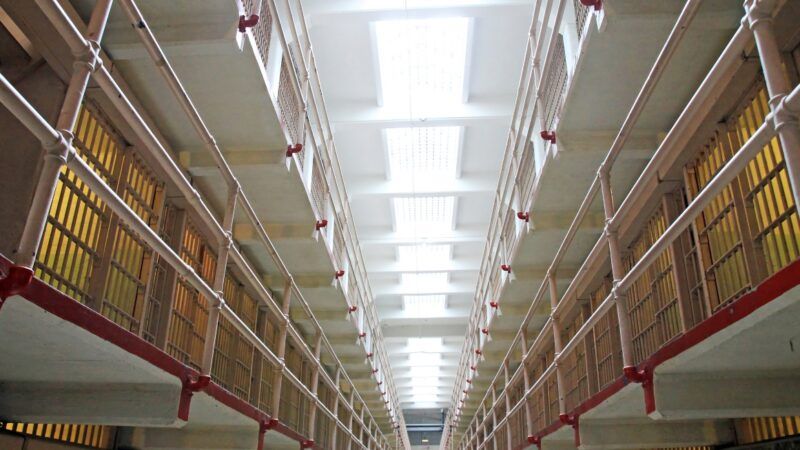New Data Show Prison Staff Are Rarely Held Accountable for Sexual Misconduct
Prison staff were fired in less than half of substantiated incidents of sexual misconduct between 2016 and 2018, and only faced legal consequences in 6 percent of cases.

Prison and jail staff rarely face legal consequences for sexual assault, according to new data released by the Department of Justice's Bureau of Justice Statistics (BJS).
BJS released detailed data this week on more than 2,500 substantiated incidents of sexual assault in U.S. prisons and jails between 2016 and 2018. The data starkly show how federal, state, and local officials have ignored their constitutional duty to protect incarcerated people from sexual assault, despite federal laws intended to create zero-tolerance policies for prison rape.
For example, the report found that perpetrators of staff sexual misconduct were only convicted, sentenced, fined, or pleaded guilty in 20 percent of incidents in jails, and only a minuscule 6 percent of substantiated incidents in prisons.
And less than half of those staff lost their jobs. "Staff sexual misconduct led to the perpetrator's discharge, termination or employment contract not being renewed in 44 percent of incidents," the report says. "Staff perpetrators were reprimanded or disciplined following 43 percent of sexual harassment incidents."
"This report lifts the curtain on the continued failure of U.S. prisons and jails to hold their staff accountable for sexual abuse," Linda McFarlane, executive director of Just Detention International, said in a statement. "Prison and jail staff are sexually abusing people in their care and getting away with it—even when an investigation confirms they did it. This is a textbook case of impunity, and it's unacceptable."
As far as federal law is concerned, there is no such thing as consensual sex between a correctional officer and an incarcerated person. It is sexual assault, always. The Prison Rape Elimination Act (PREA) of 2003 was supposed to create zero-tolerance policies for sexual abuse in U.S. prisons.
However, PREA is largely toothless and, in many prisons, it's a bad joke. In December, the former PREA compliance officer at FCI Dublin, a federal women's prison in California, was convicted of sexually abusing incarcerated women.
The BJS report also found that half of both inmate-on-inmate and staff-on-inmate incidents occurred in areas not under video surveillance.
The BJS report comes on the heels of a December Senate investigation that found that the Bureau of Prisons (BOP) has failed to implement PREA, and that long delays in investigating complaints have led to a backlog of more than 8,000 internal affairs cases. The investigation, conducted by the Senate Permanent Subcommittee on Investigations (PSI), concluded that these management failures "allowed serious, repeated sexual abuse in at least four facilities to go undetected."
"BOP's internal affairs practices have failed to hold employees accountable, and multiple admitted sexual abusers were not criminally prosecuted as a result," the PSI report said. "Further, for a decade, BOP failed to respond to this abuse or implement agency-wide reforms."
The PSI investigation found that BOP employees sexually abused female inmates in at least two-thirds of federal women's prisons over the last decade.
In response to the findings, Sen. Jon Ossoff (D–Ga.) co-sponsored the Federal Independent Oversight Act. This bill would, among other things, create an independent committee to investigate complaints received from prison staff, incarcerated people, or their loved ones.
Some fixes have already been passed. At the end of last year, President Joe Biden signed the Prison Camera Reform Act into law, which will require the BOP to fix its broken surveillance camera systems and improve their coverage.
However, these bills only affect the federal prison system. Prison rape scandals have erupted in many state prison systems, such as Florida, New Jersey, and Alabama.

Show Comments (43)